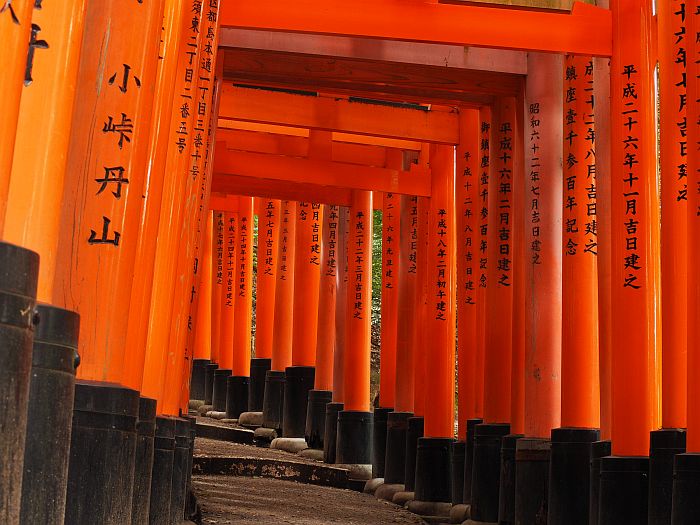
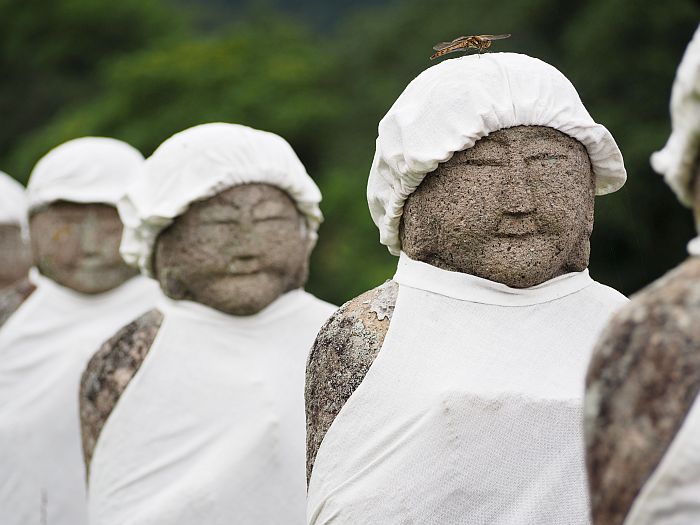
I was now in the Japanese civilization and, first of all, I had to get used to all the people, even though I was still far from being in any big city. But the hubbub had already become enough for me and it didn’t need to increase.
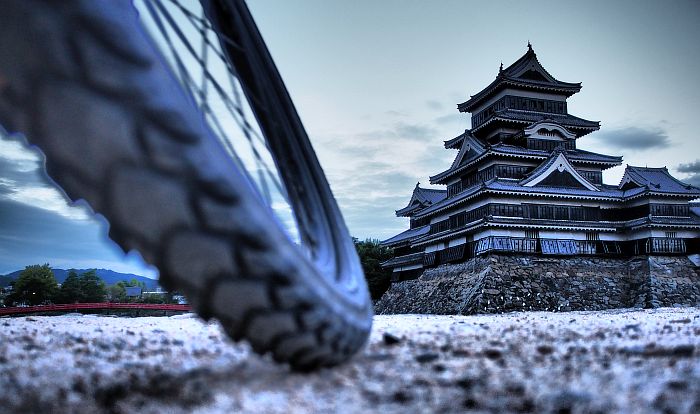
Matsumoto is known for its castle. It is perched royally right there in the middle of a small pond.
But what made me far more enthusiastic in Matsumoto was the fact that I met more tourists in one afternoon than in the last 10 weeks I had already been in Japan. And since I never have trouble reaching out to other people, I was engaged in conversation all afternoon about everything under the sun with people from several different nations. Just lovely!
In the evening a Japanese lady who conducts tours in the palace spoke to me and asked me where I would stay the night. As always, I hadn’t decided anything yet, even though it was already late at night again.
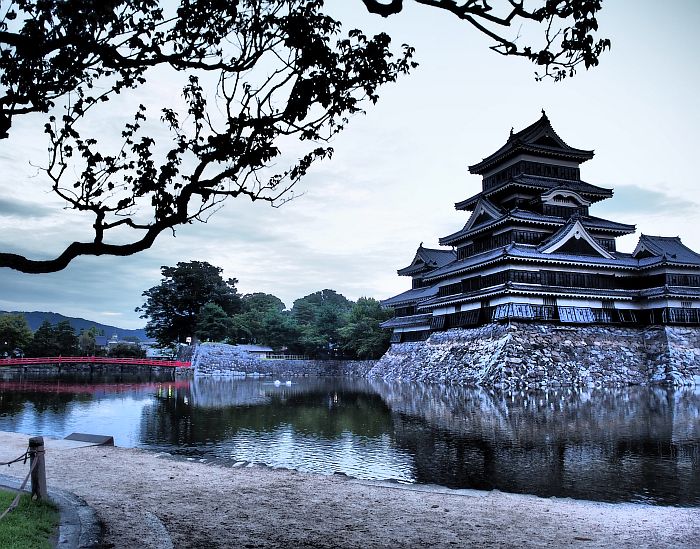
With her approval, I pitched my tent at the edge of the park next to the castle and already had a somewhat uneasy feeling about it, but I was just too lazy to look for an alternative spot to camp.
At 6 a.m. I woke up abruptly. The tent was shaking. Someone had obviously stumbled over one of the tent pegs. A Japanese man, about 20, looked straight into my tent. He began to take off his shoes and clearly wanted to come inside.
I was immediately wide awake. Only the mosquito net separated us and, in my surprise, I gave him an orderly shove and yelled at him telling him to go away. But the guy just didn’t want to give up. He continued to fumble around with the tent, but he couldn’t find the zipper.
Quick as a flash I dressed, yelled at him again, and then shoved him away from the entrance again. People were in the area, mostly elderly people, but no one came to help. It even appeared that they were looking the other way on purpose. I was sure that they could see what was happening, because in Japan nobody shouts at anyone, and certainly not the way I had done it then.
He smelled of alcohol, but I wasn’t sure whether he was just drunk or maybe stoned. He was simply super weird, but luckily he wasn’t aggressive at all, only very pushy. Also, he didn’t seem to want anything from me personally; he simply gave me the impression that he only wanted to lie inside my tent.
But since I wanted to stop him, I grabbed him by the arms, pushed him to the side and felt no resistance. From that moment on, I knew he was no danger and I calmed down about three gears lower. I packed my things, kept him at a distance, threw his shoes around in the area to give me time to pack up and then rode away.
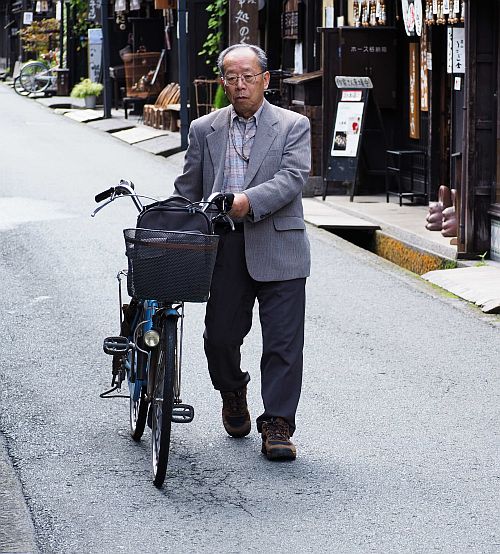
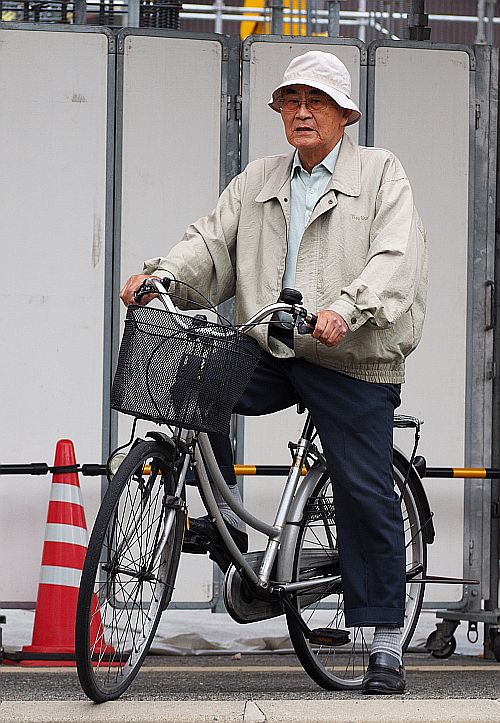
I explained the situation afterwards to several Japanese people and wanted to know why no one helped me. Did they think that the woman herself was at fault because of camping in such a place? Or were they making it simple by not getting into trouble themselves? Or are there so few criminals in Japan that no one could believe that anything could happen to me?
Overall, everyone I talked to was so embarrassed that none of them looked at me and they agreed that the people just wanted to have nothing to do with it. In other places in the world, it probably wouldn’t have been otherwise, but it disappointed me anyway.
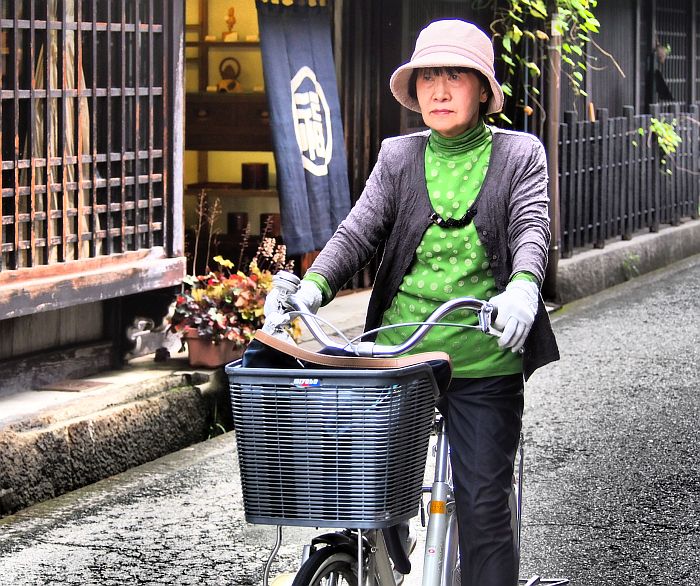
I met the same woman from the day before and after I told her the story of the night in the tent, she invited me to her house. Japanese BBQ was on the menu.
She told me about her son, that he had had a job until recently, where he worked from 9 a.m. until 5 a.m. – a whole year long. Mon-Fri and only a ridiculous four days off. Then he collapsed from burnout.

At a 7-Eleven, a truck driver gave me a 1000 yen bill (135 yen = 1 Euro). I was supposed to buy something to eat with it. Shortly later, a woman gave me some chocolate and, as always, I was surprised how many nice people there are in Japan.
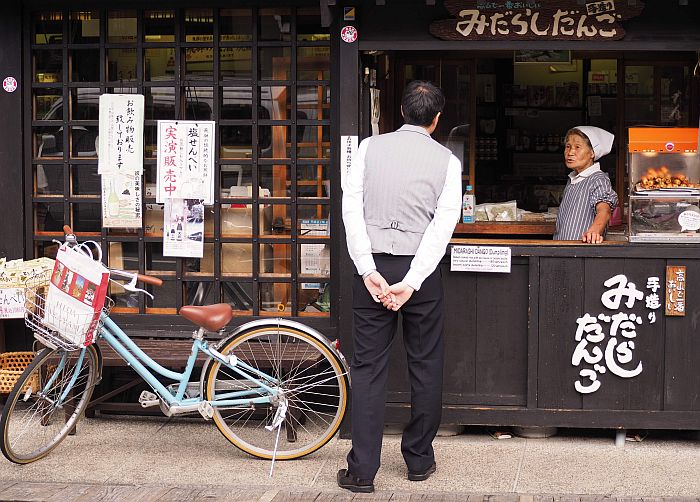
To go online, you have to cheat a little bit in Japan. Sometimes at a “Mishi No Eki” (a rest stop) you can find Internet access. However, other than on the toilet, it is difficult to find a plug-in.
At the 7-Eleven shops, there is only social media access. In contrast, Lawson’s has 5 x 1-hour access, often at a snail’s pace, but cost-free. At Family Mart you have 10 minutes, but each time you have to dial in again. I’ve sat on toilets several hours and used the plug-in on the high-tech toilets to contact the external world and to somewhat sweeten the eternal rain. Since I never paid for sleeping overnight, there was no other way to do it.
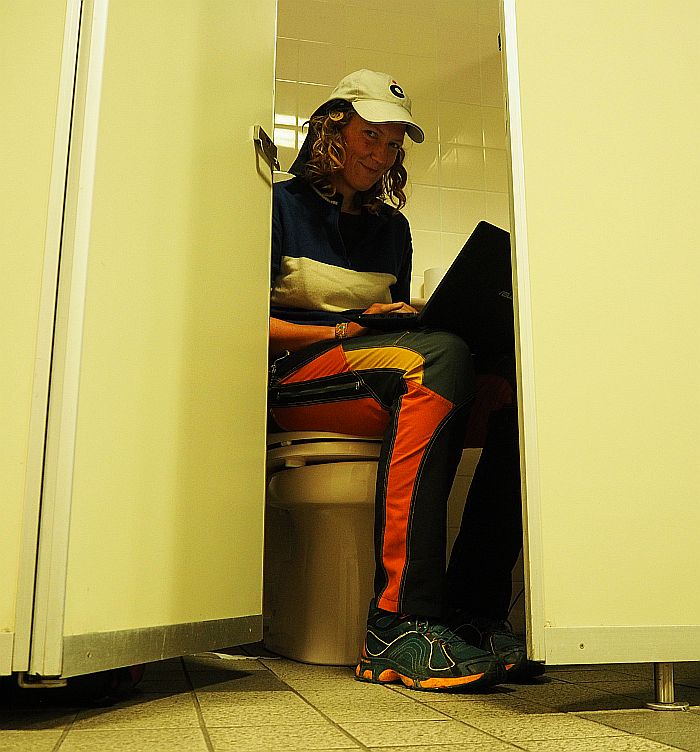
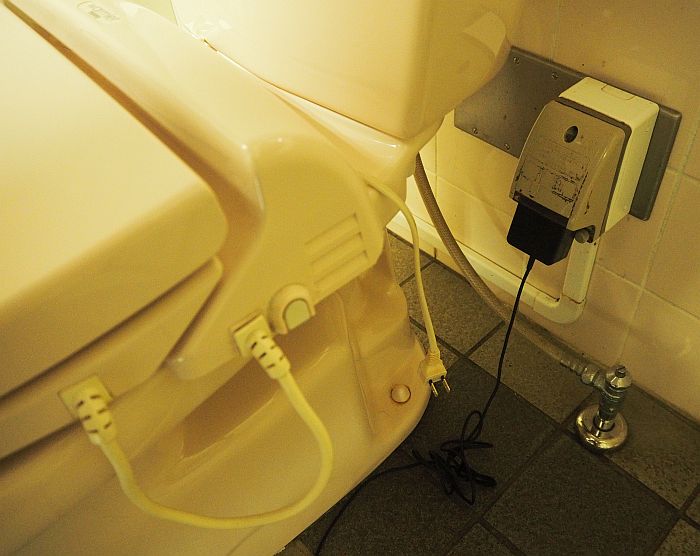
The weather finally became better. The sun showed itself more often and the eternal rain seemed to come to an end.
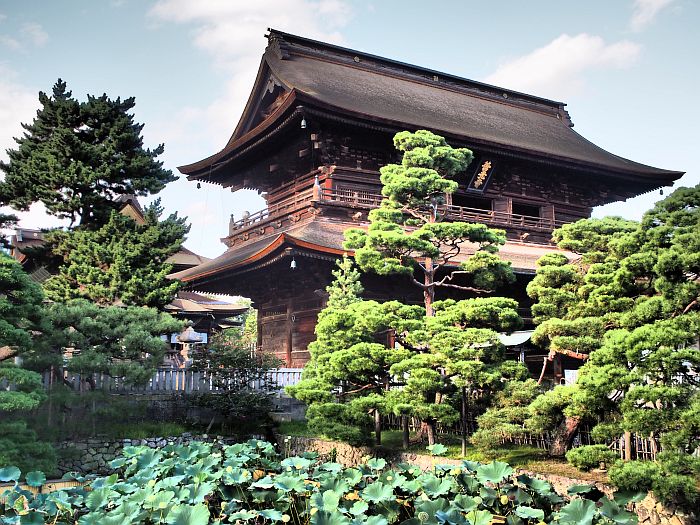
Gambling halls are a coveted variety for young and old. They are really non-stop in the larger villages. The machines are truly out of this world and are more reminiscent of Star Wars or Star Trek.
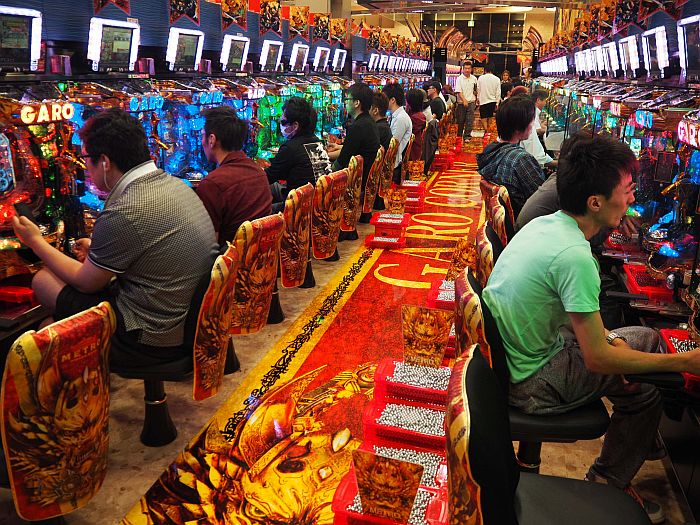
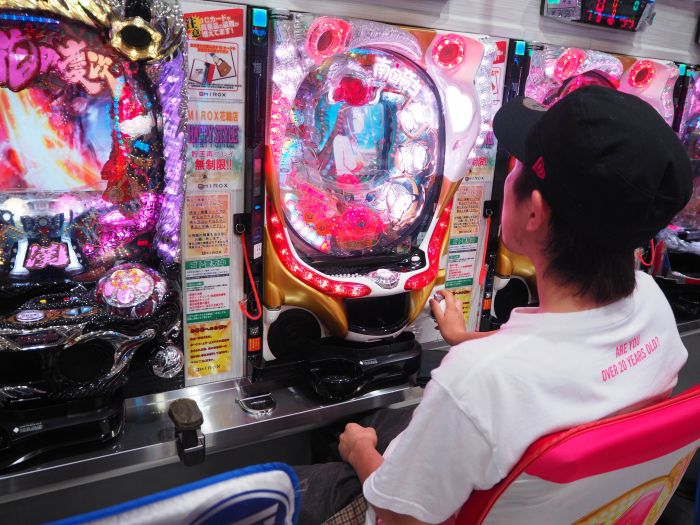
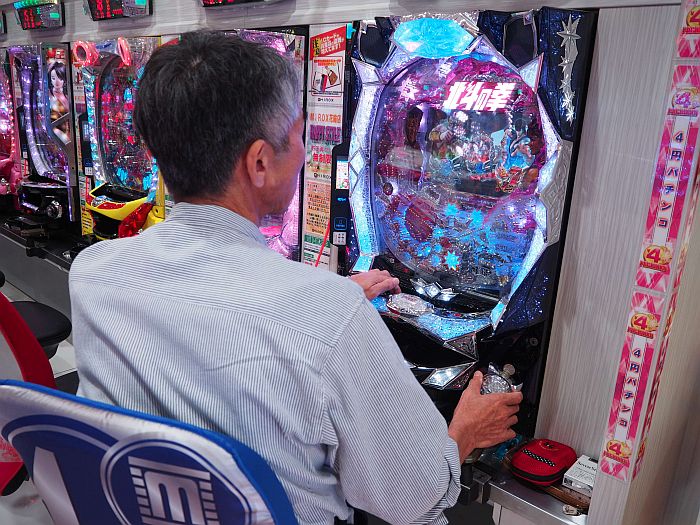
At the foot of one of the highest pass roads in the Japanese Alps, I allowed myself two very nice Onsens. One of them was beautifully situated on a creek in the woods. From the medicinal water there, it is said that after 2 hours in the pool, you won’t get any more colds for the next few years. Of course, it certainly couldn’t have been tested yet, because no one has ever been able to stay in the hot water for so long.
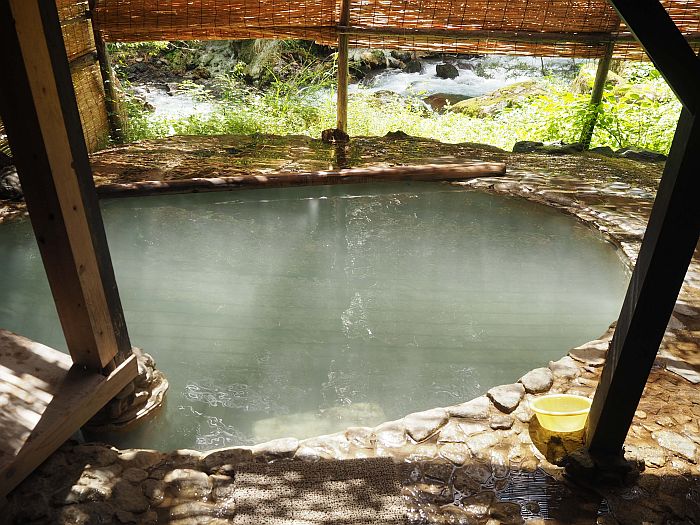
I had the other pool all to myself. It was tiny, terribly salty and just wonderfully relaxing.
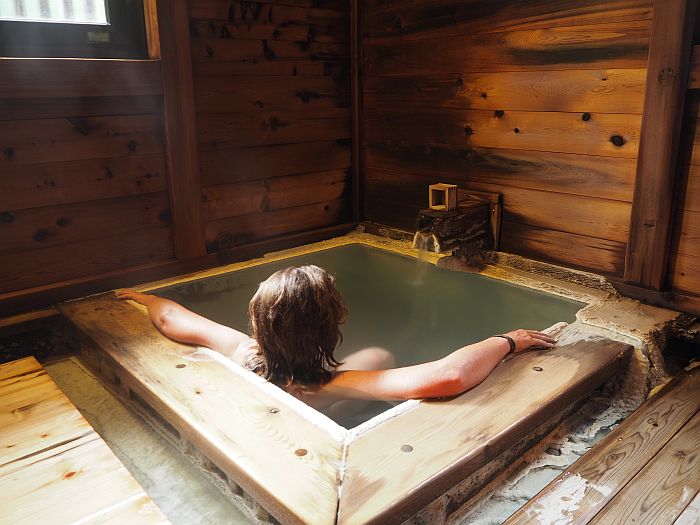
The pass was at 2700 meters, but the slope was absolutely unproblematic. The reward was unfortunately unimpressive because the fog morphed everything into a colorless gray.
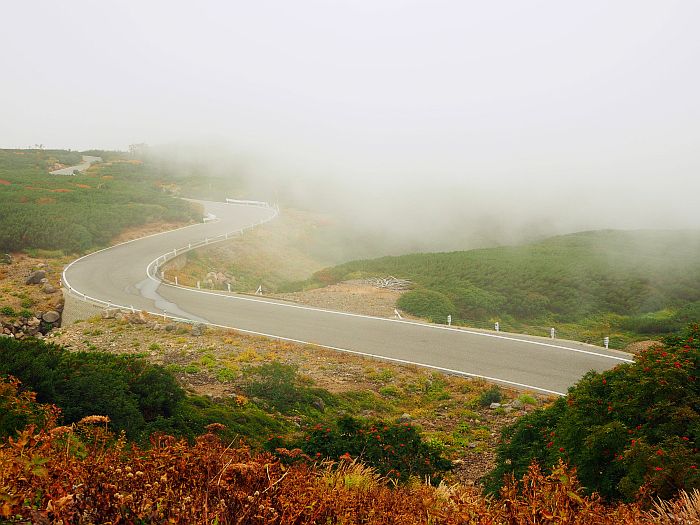


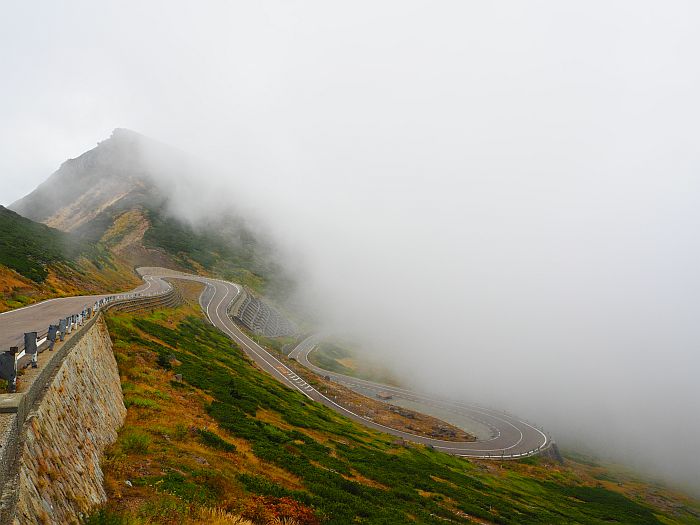
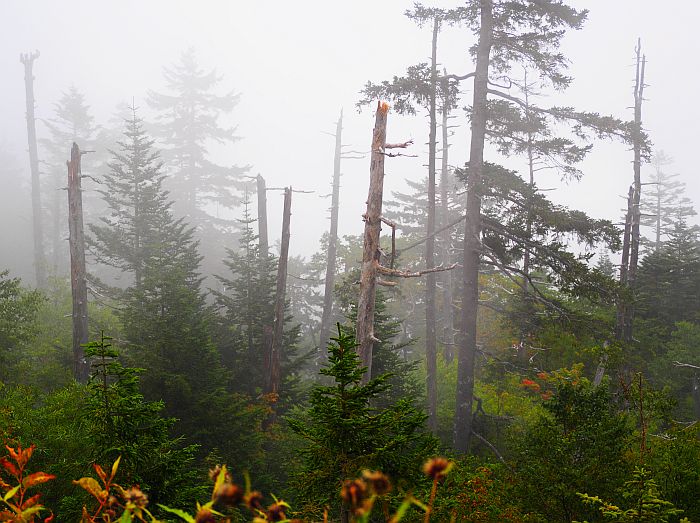
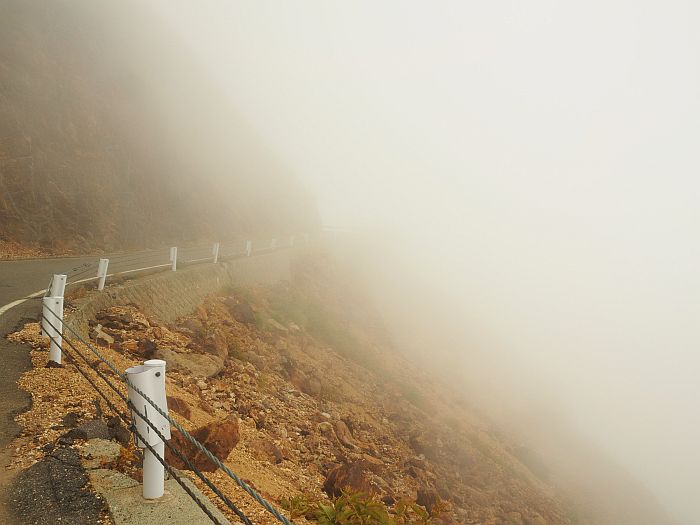
After a long day on the road, I eventually arrived at the home of my first Japanese warmshower host in a small village in the dark. He had already sent me a message, that even if he should not be there, I could just come in and make myself comfortable, because the door was never locked. I love things like that. He had already cycled in Canada and, therefore, spoke some English.
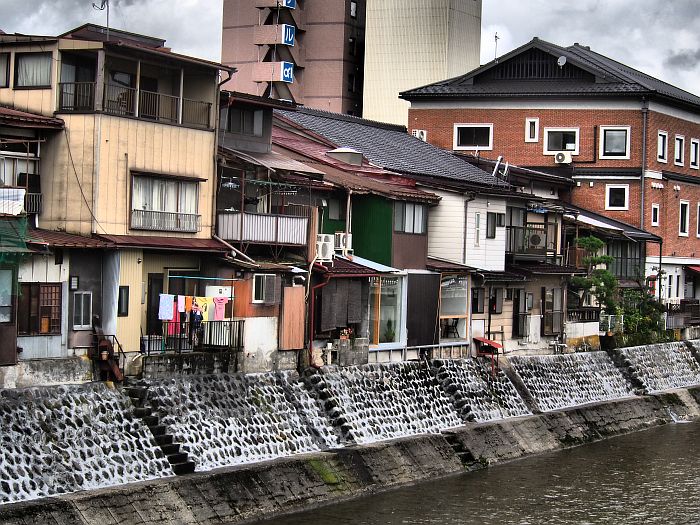

His neighbor had lived a long time in Germany and, therefore, I had to chat with him. Before I came to Japan, I had been told by several people that the Japanese are very similar to Germans. Well, I never commented much about that, because I inwardly thought that these two nations were as different as day and night. But now the opportunity arrived to put the question to the Japanese man.
“What did you particularly notice about the Germans?” He answered “I was totally disoriented at first, because there were no rules in the country. Also, the Germans have an extremely strong identity of their own. “
And that’s what brought it to the point. Of course, in Germany we have lots of rules, but we know how to deal with it in a healthy way. The Japanese, on the other hand, seem to follow even the most ludicrous of regulations because, due to their own philosophy of life, they can barely establish their own identity and, because of their obedience to the rules, they would never think about opposing them.
In my opinion, they have a herd instinct, whether it is in the family or at school. At work or in a club, they almost never get the chance to present their own point of view. Japanese have always been in a group. In the group, there is harmony, discipline, goal orientation and subordination is paramount.
Following rules is indoctrinated from childhood on. Even the bad behavior of an adult is attributed to his parents, so it is extremely important for the parents to emphasize educating their children well so that no bad light falls on them.
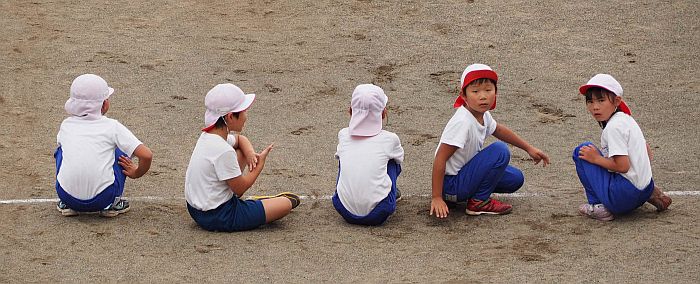
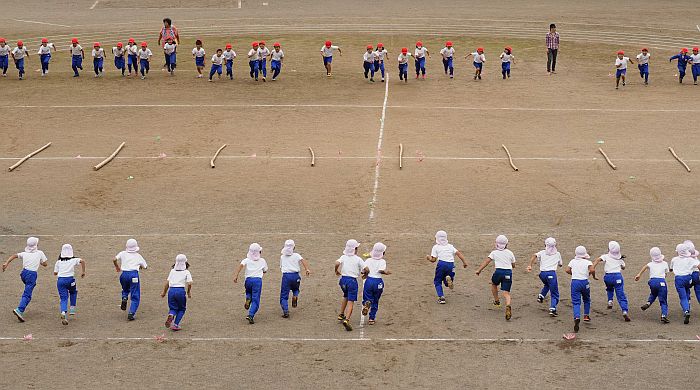
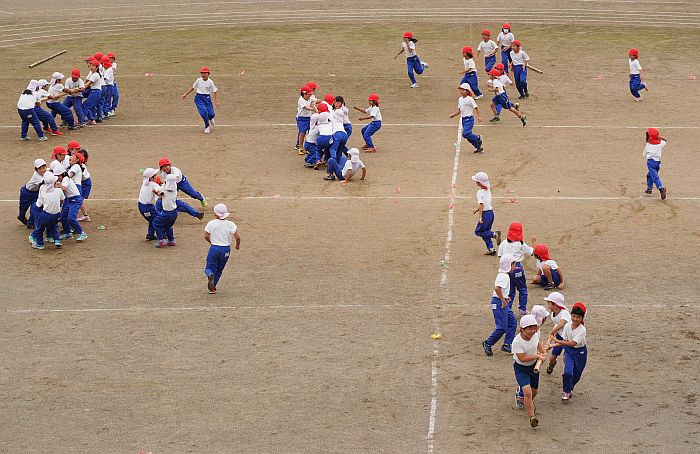
I believe that’s exactly what stirs the shyness of the people. They have no identity of their own. Since the people must always display harmony, it is also a society in which people are hardly ever told the truth.
I never saw anyone arguing in 3 months; no one spoke loudly. Nobody was abusive and no one misbehaved. I also never noticed anyone who somehow stood out because he was different, other than the wanderer who had dropped out of society or the drunk who wanted to get into my tent. All the others were somehow all the same; at least it was so in the country. I didn’t go to Tokyo.
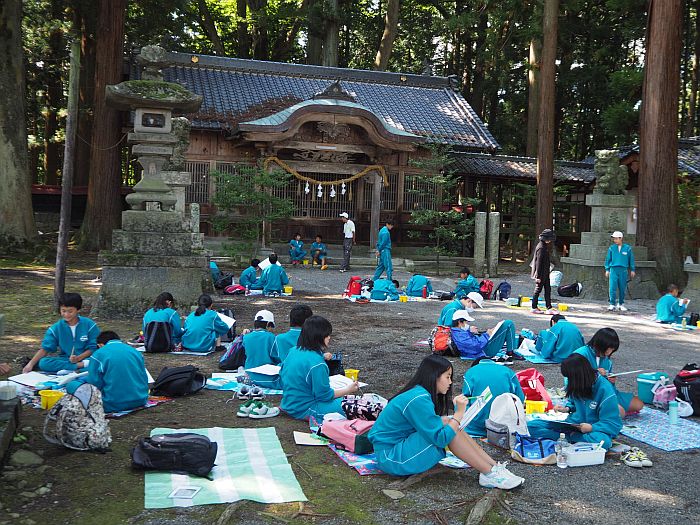
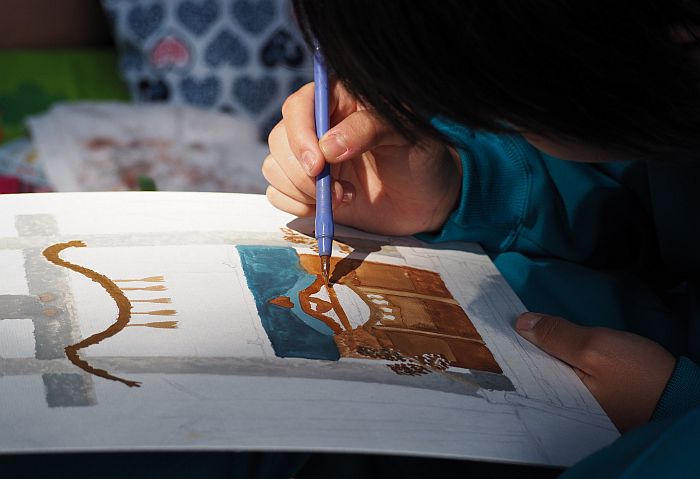
We Germans are well-known in the world for coming directly to the point and stating our opinion directly to the people we meet, also for how much we like to discuss things. So we are probably the exact opposite of the Japanese.
There is one thing that makes us the same and that is our order and purposefulness. Otherwise, the Japanese are as foreign to me, or even more foreign to me, than any other East Asian nation.
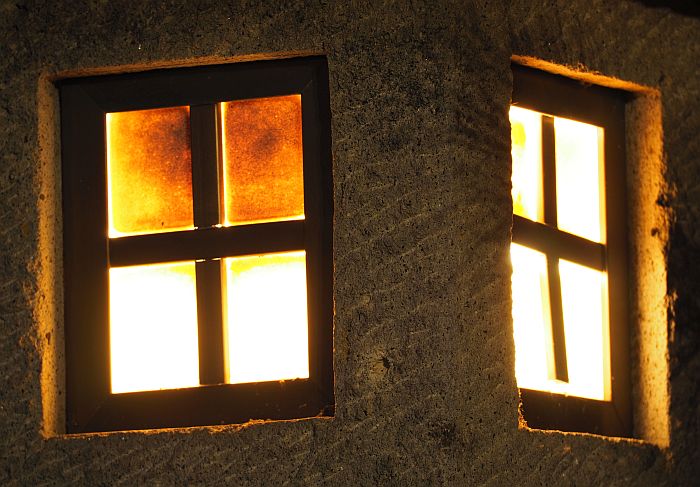
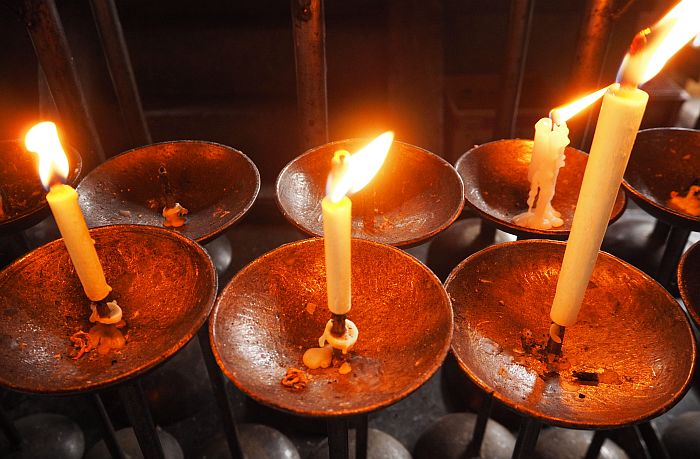
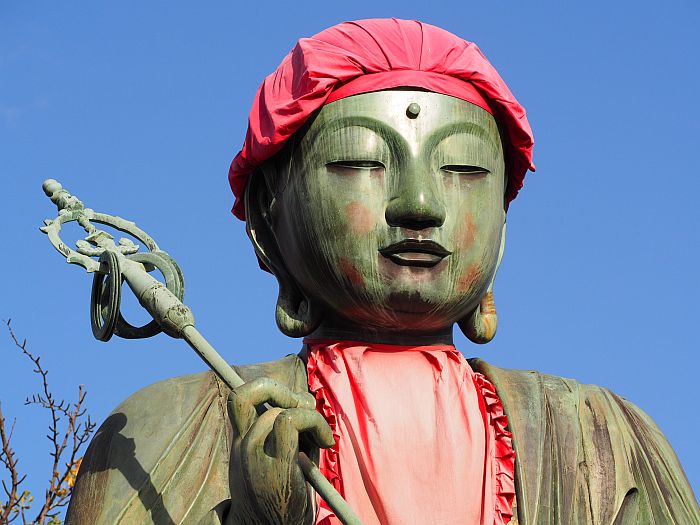
What is also striking is that not only the people are all somewhat similar, but probably also their needs. If you know one supermarket, you know them all. The products are really always the same. The country was isolated so long that there is little outside influence here. In the long run it becomes boring. The houses all have the same style; the temples look more or less all the same; and somehow the last two weeks have seemed to just pass by uneventfully for me.
The cities became larger and larger and little by little the stimulus decreased. But I had a far greater chance to learn about life within the homes, and, of course, that was really great. I could now learn much more intensely about Japanese cuisine, because as you can imagine in the homes the food is completely different. They always spoiled me and I have to say that in the end I really even loved their food.
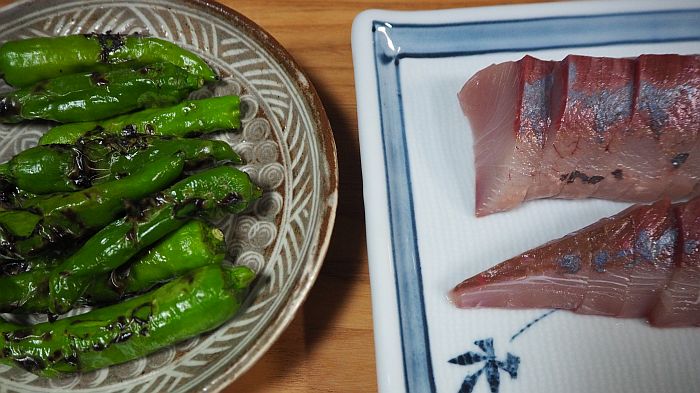
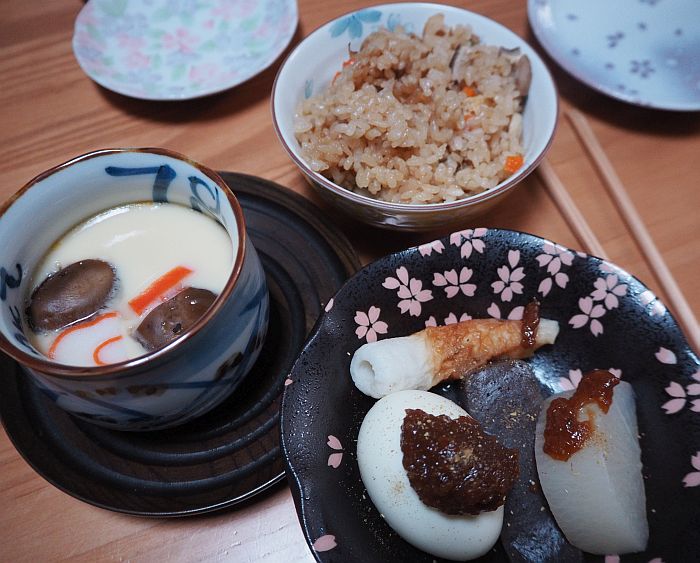
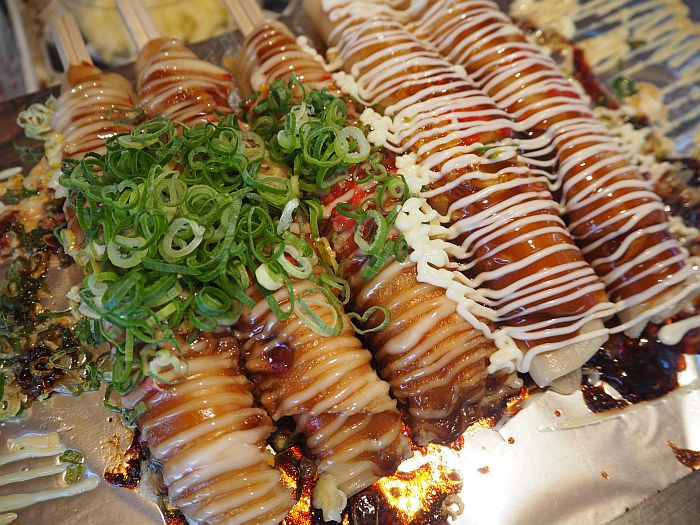
I was sitting in a small restaurant when a Japanese man spoke to me in English and immediately invited me to go to his home. Initially, the entire family was totally overtaxed and I was only allowed to sit in the hallway, but gradually they became more relaxed. For breakfast I was even allowed to sit at the dining room table and was invited to stay another night.
The two boys in the house left to go to school at 7 a.m. then came back home around 7 p.m. to immediately start their private English lessons, and afterwards, they went to their singing lessons. They came home at 10 p.m., ate their evening meal and went straight to their rooms to study for the next day. They never went to bed before midnight and at 6 a.m. the alarm clock would ring again. They are 13 and 15 years old.
The older one wants to go to Broadway. And to my big surprise, he warbled the song “Heidenroeslein” (Heather Rose) to me and danced the Swan Lake ballet in the living room. The whole family was very disappointed that I didn’t know the lyrics of the German song, because apparently all the Japanese people can sing it.
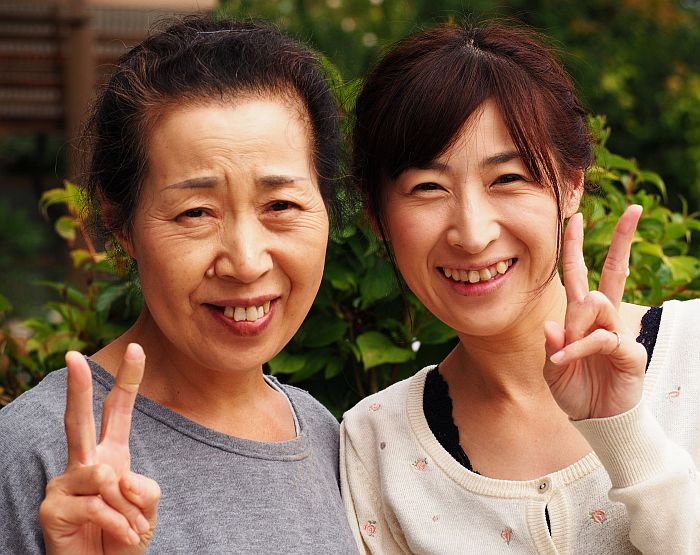
Japanese writing is something unique. As you can see from the image, there are a total of 4 fonts that are used wildly in a rather confusing manner. How one is able to figure it all out is a mystery to me.
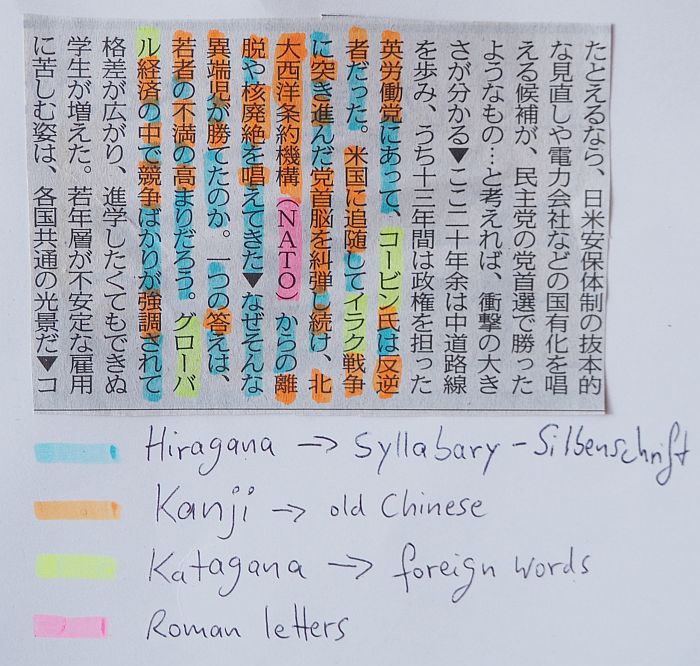
The next night I stayed with Takeshi, a warmshower host, who had just returned from a ten-year cycling trip, but who had also been able to work somewhere along the way.
Takeshi was still in a total reorientation phase. You could tell that he was still unable to identify with his fatherland. We talked about the meaning of life and it was incredibly interesting to hear his views. But he was also honest with me that he is just a Japanese man at heart and, however much he learned abroad, he still knows where his roots are. Whether he could put up with staying in Japan, he had his doubts – a problem that probably all long-term travelers will eventually face.
Takeshi persuaded me every day anew to stay one more night and, in the end, I stayed four nights.
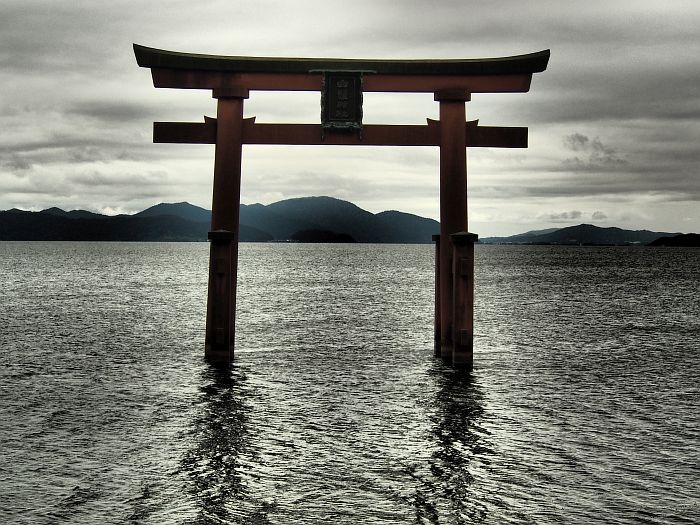
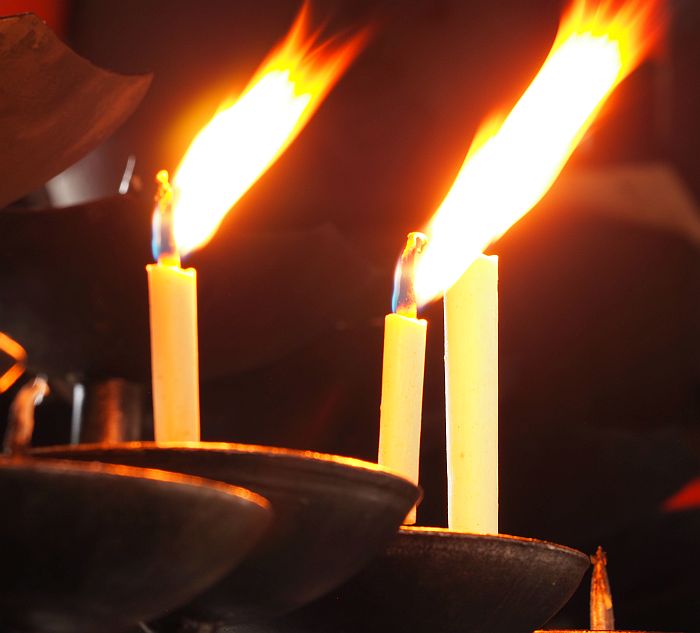
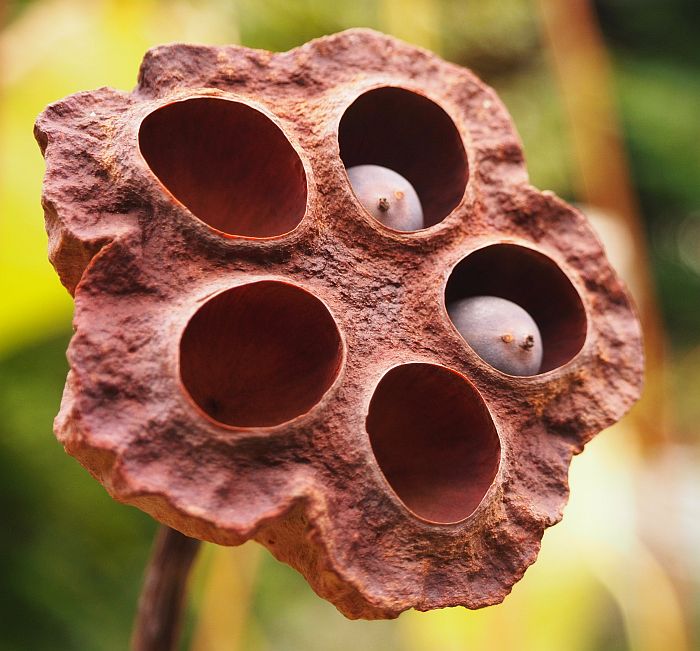
It would take another two days to get to Kyoto and I was on the road in the pouring rain again on both days. But, as a reward I found a 5000 yen bill (about 38 euros) in a mud puddle in a dark tunnel and so my day was saved.

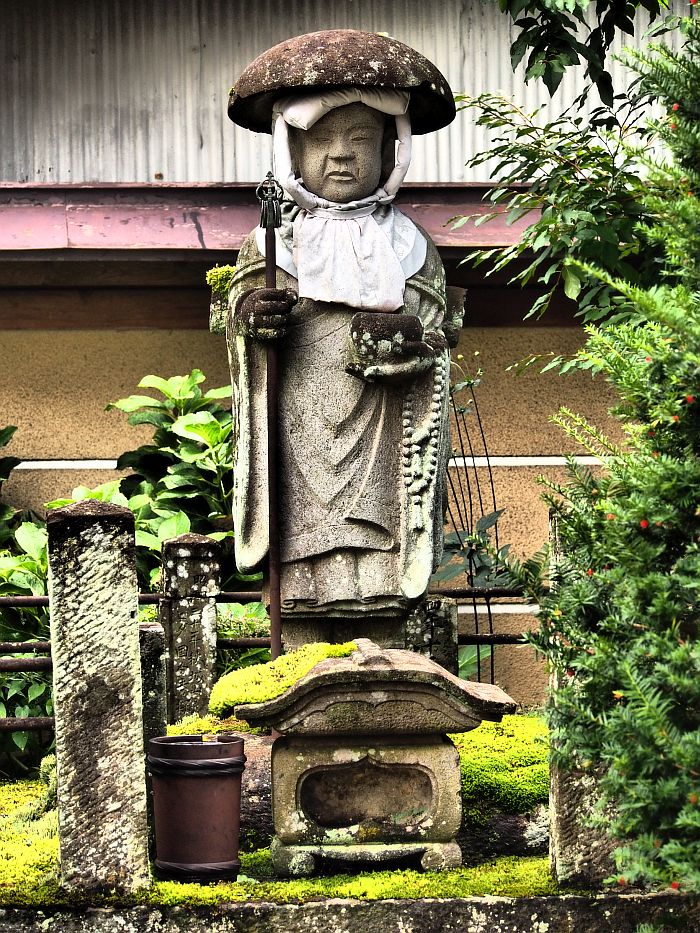
It was already dark when I wanted to ride in the rain as far as the next Mishi No Eki, but my headlight batteries were getting quite weak. A truck was coming closer and the guardrail beside me as well. There were maybe only two centimeters of space between us – too close for comfort. Actually, he should have been able to see me if no other reason than my extremely bright shiny reflectors on the panniers. He was probably just sleeping. Driving at night is simply too dangerous, especially since the traffic was becoming increasingly heavy.
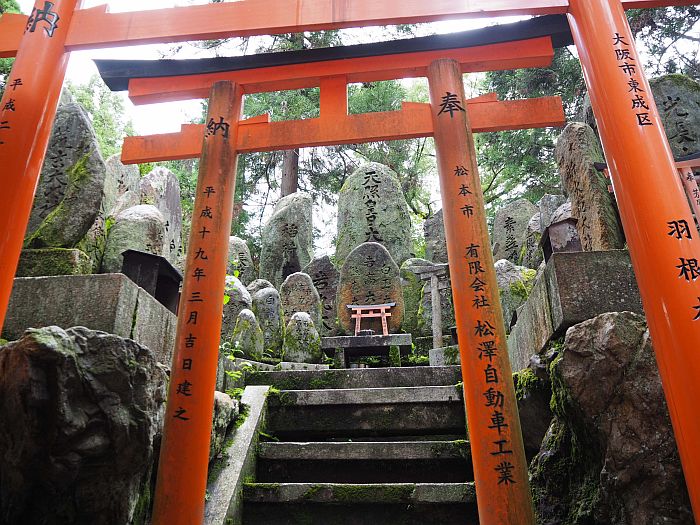
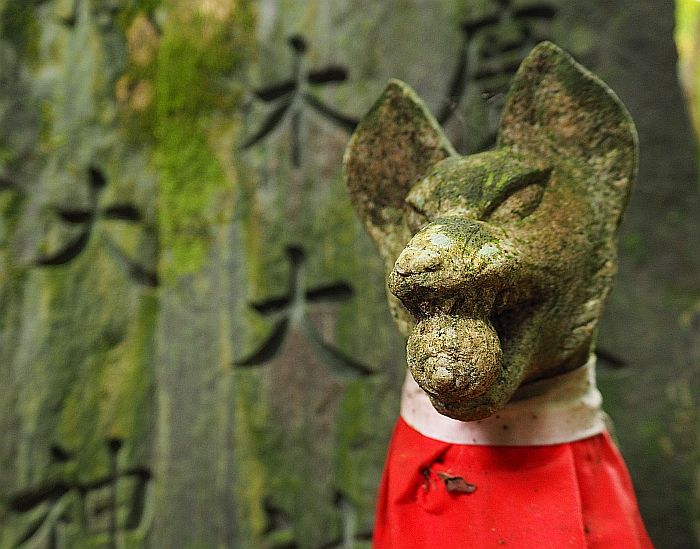
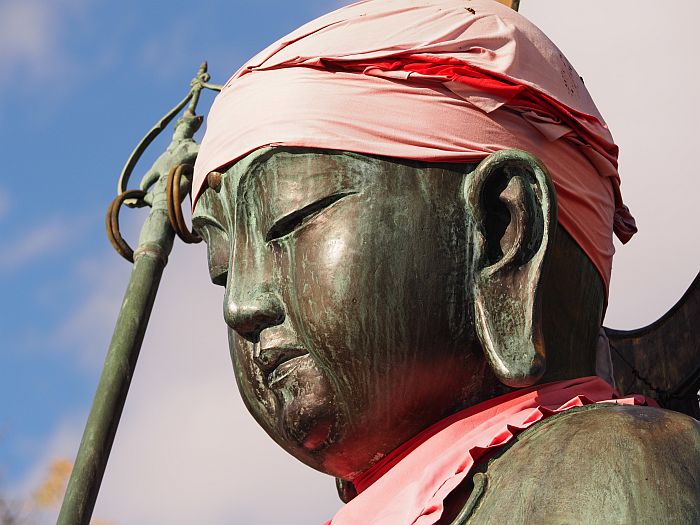
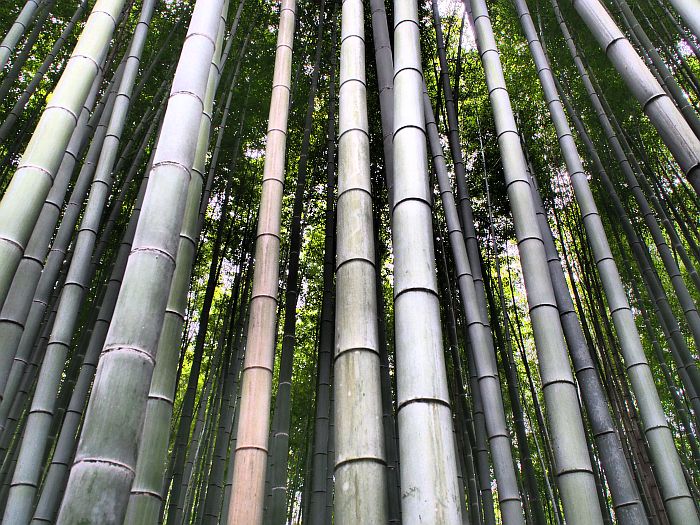
In Kyoto, I finally arrived in a large city and had, first of all, a touri- and temple flash. Kyoto is the cultural center of Japan. There are so endlessly many temples that it would probably keep one busy for months to see them all.
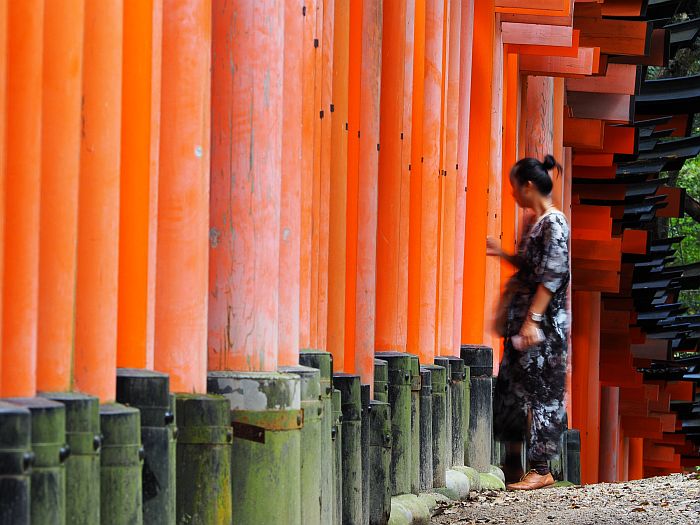
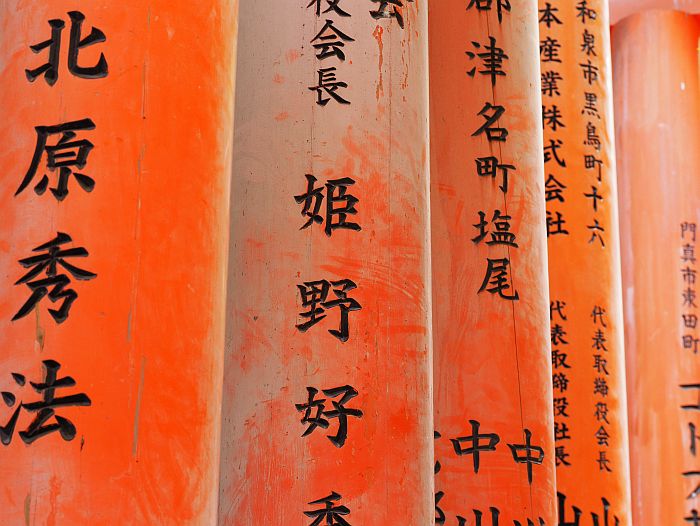
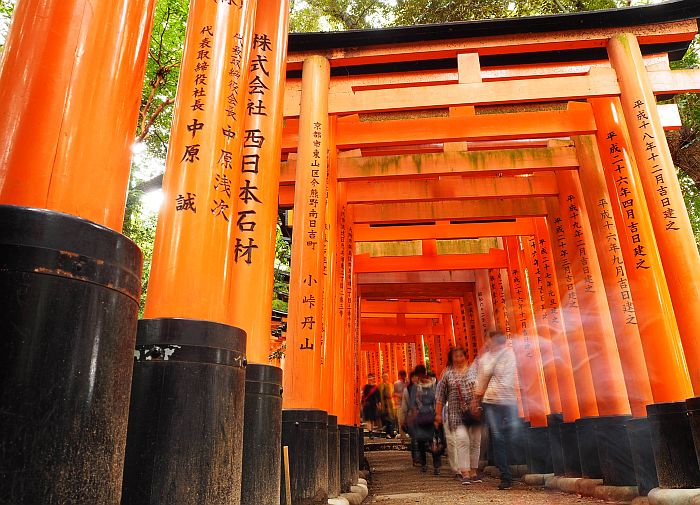
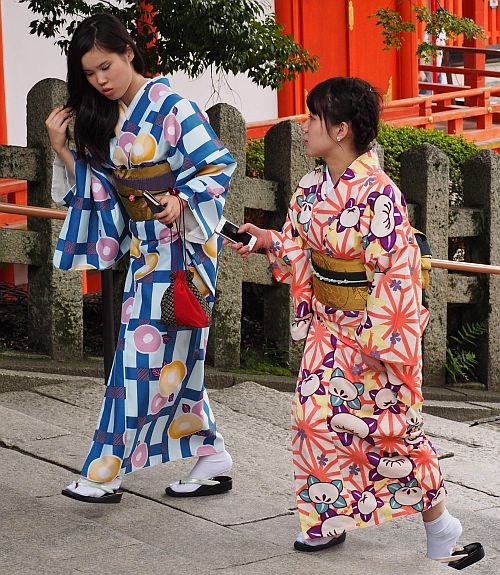
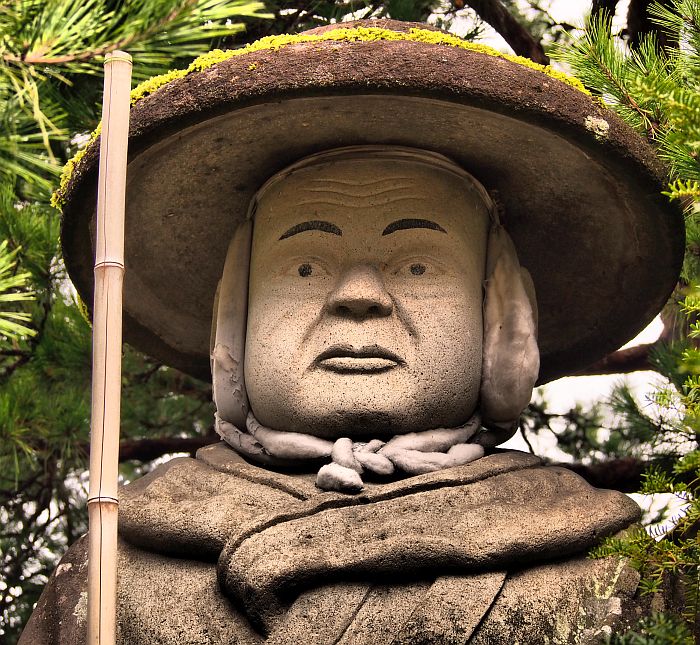
I stayed with Ken, an American. Ken is the only warm shower host in Kyoto and, because of that, he has many requests. His apartment is small but cozy and absolutely central. Ken told me some of the other cyclists who had been guests at his place. I already knew a few of them because of Facebook. Somehow it’s still a small community.
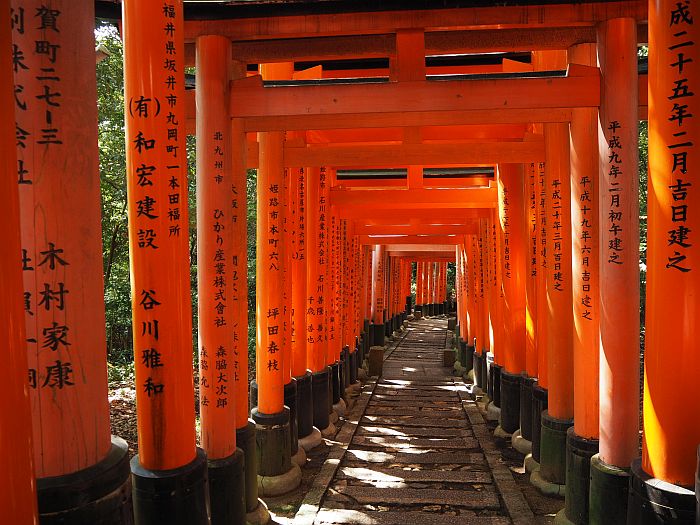
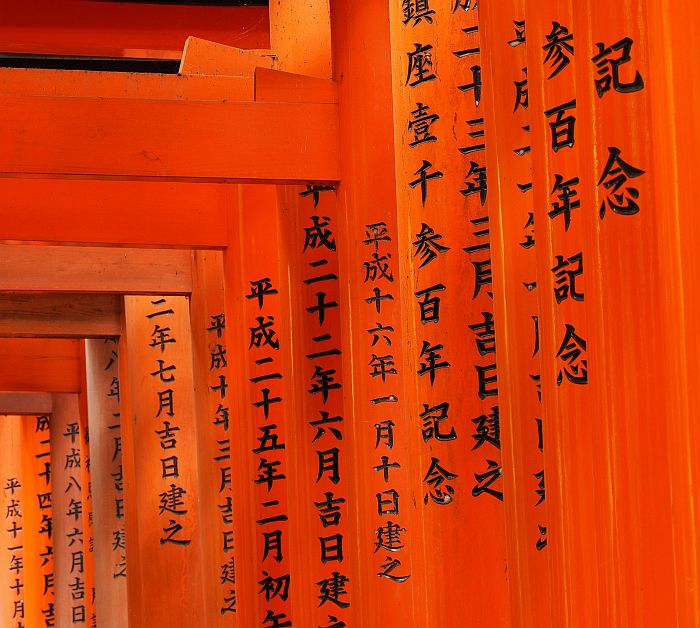
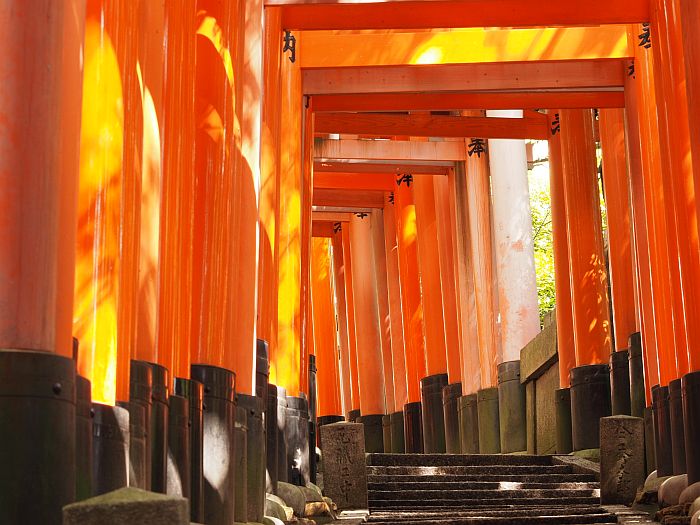
In Kyoto I especially liked the Fushimi Inari-Taisha Temple – a truly unique structure – a huge site with donated Shintu shrine gates.
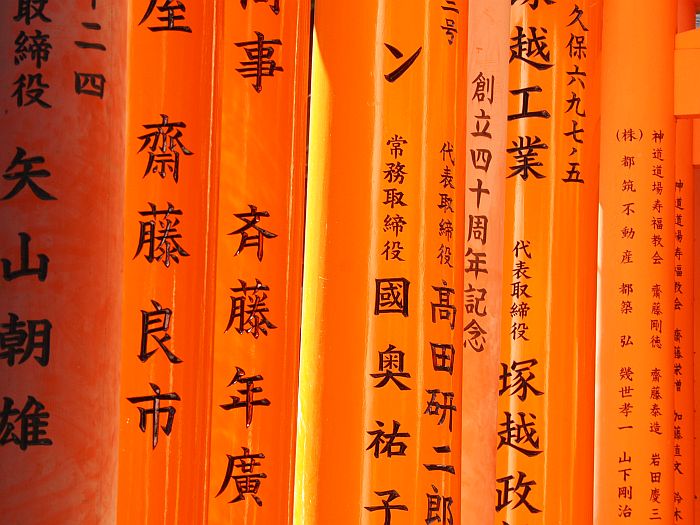
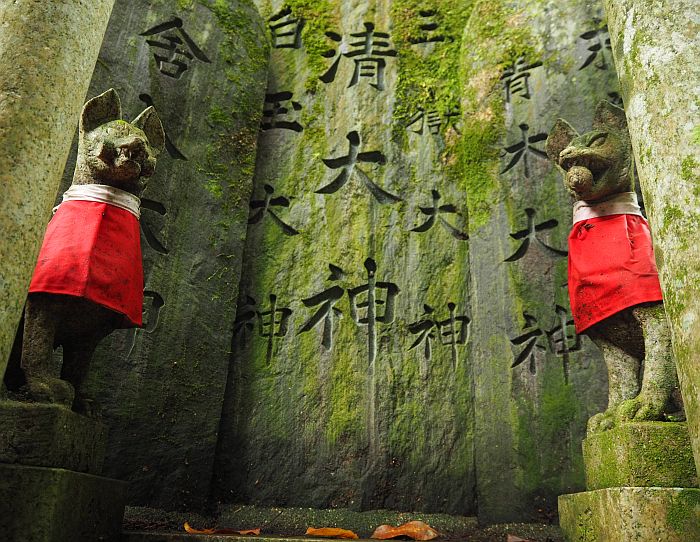
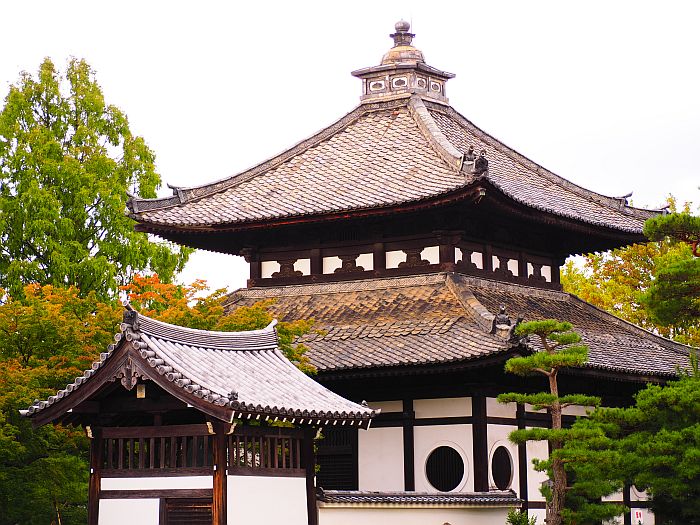

Unfortunately, on every corner in Kyoto, nearly every temple requires an entrance fee and after 1 ½ days I was fed up with all the hustle, even though the temples were also very impressive.
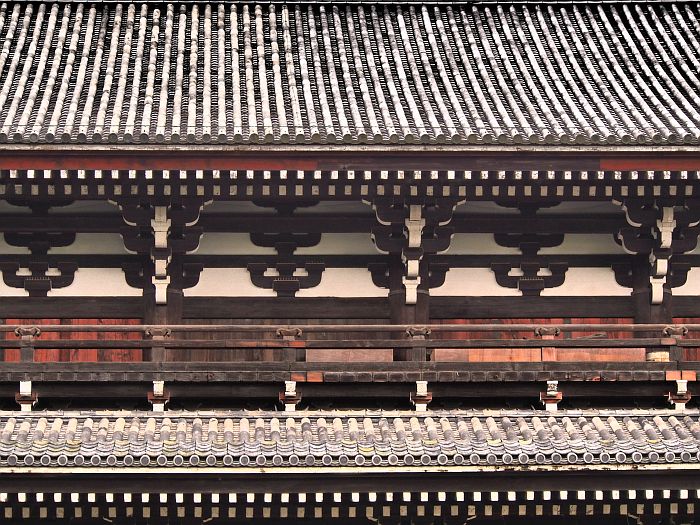
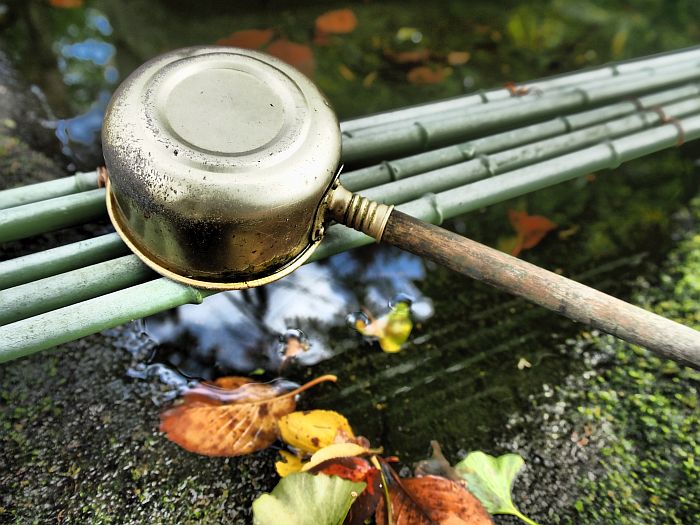
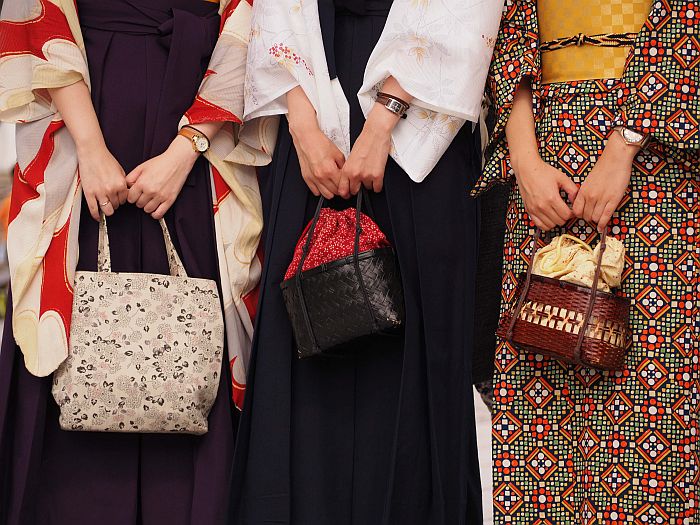
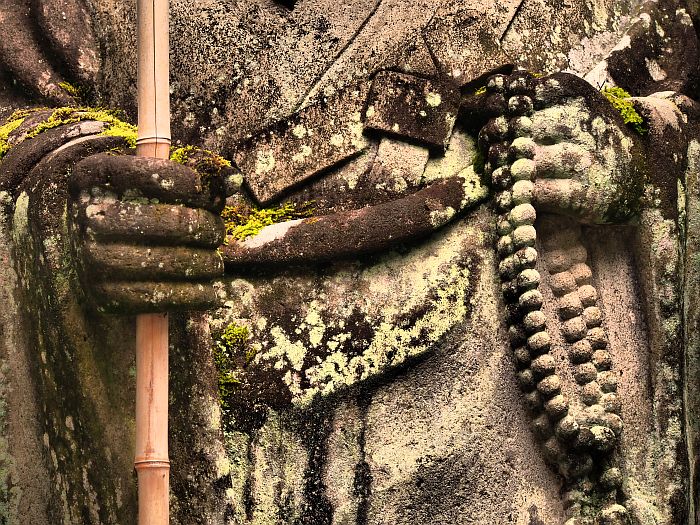
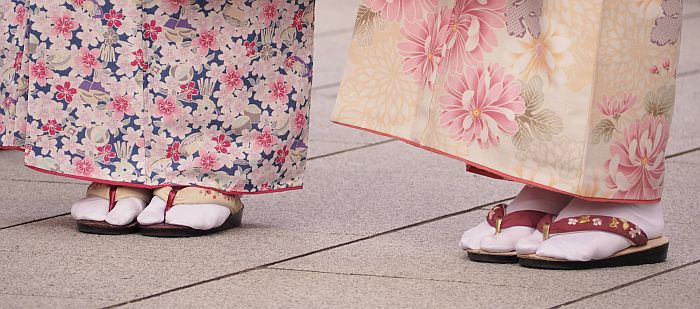
The Japanese have an extremely unusual taste in art. Actually, it is characterized by simplicity and order. It is neither overweight nor colorful. Mostly the temples are simply made of black or brown wood. In front of them are beautifully landscaped gardens, which are particularity special because of their bonsai trees. Everything is very accurate – just like the entire society.
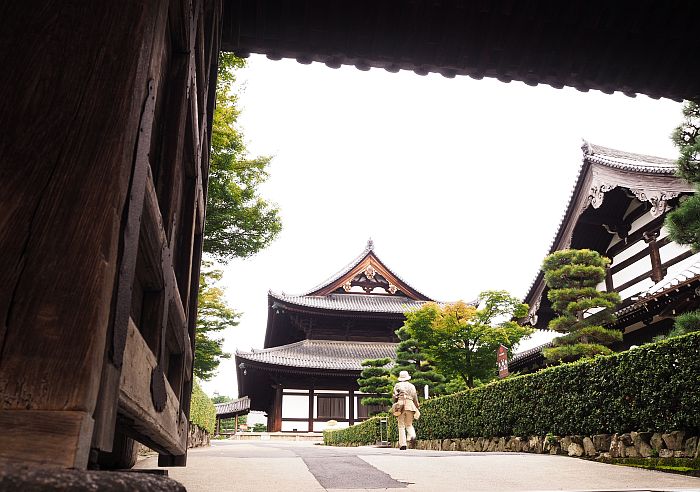


For the past 3 months I was always amused by the street workers who controlled the street barricades with their flags and bowed to the drivers when they were allowed to continue. In contrast, in Kyoto everything is taken to the extreme and rolls over into the completely ridiculous. At an expensive hotel, there are 5 men who help a guest maneuver his car out of the hotel garage by watching the traffic for him and then bid him goodbye by waving their flags and bowing.
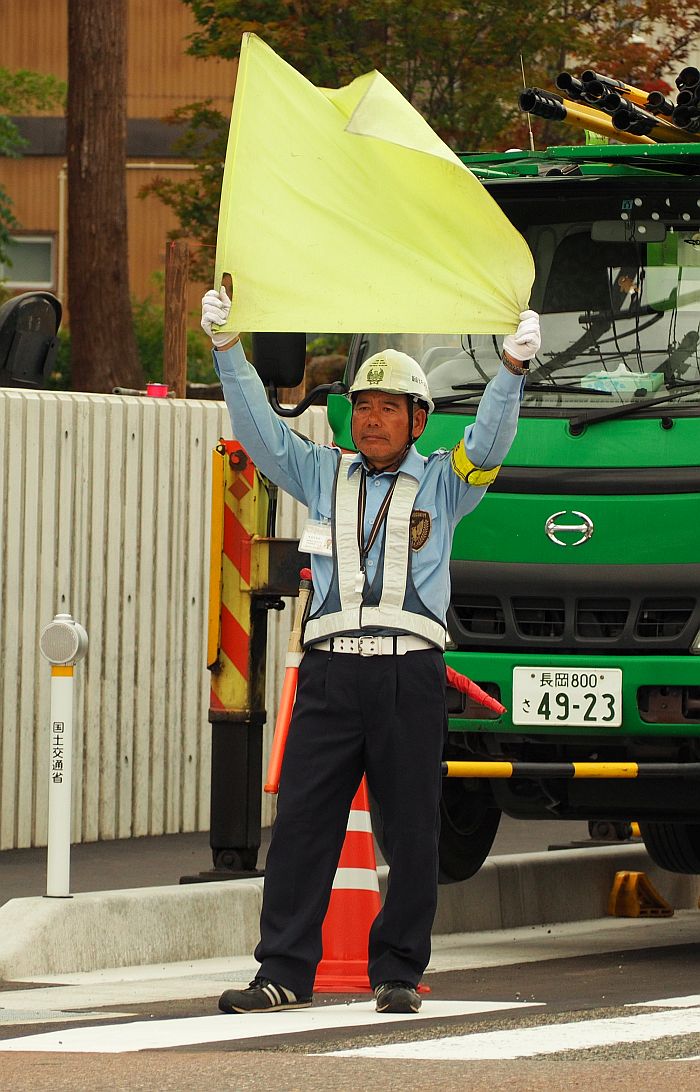
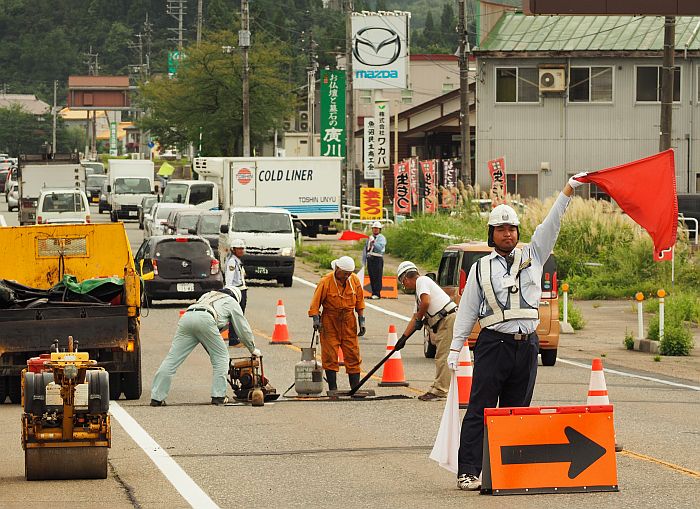
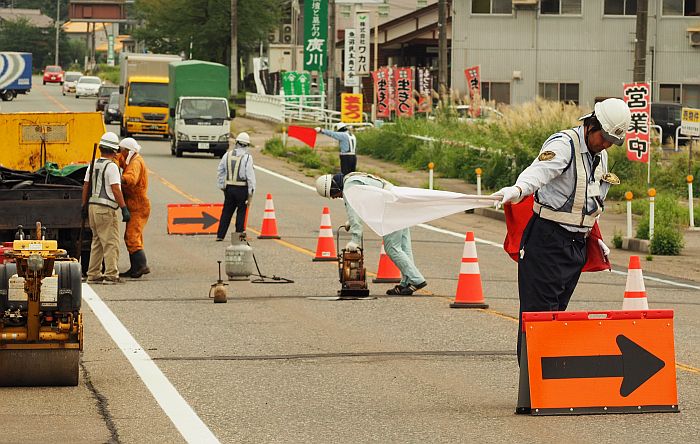
Here in Kyoto, you can only leave your bicycle in the bicycle parking lot, where you have to take a ticket. And some of the parking lots even cost money.
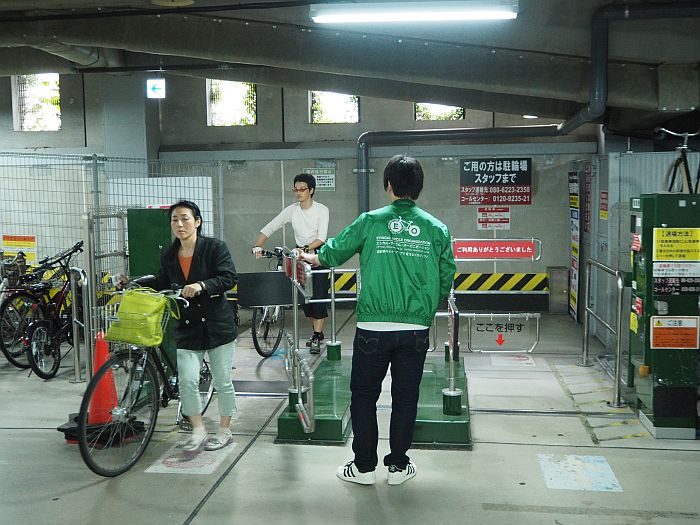
There are an unbelievable amount of traffic lights in the cities and actually you spend more time stopped at the traffic lights than going forward. Very many of them are placed completely in the wrong place anyway.
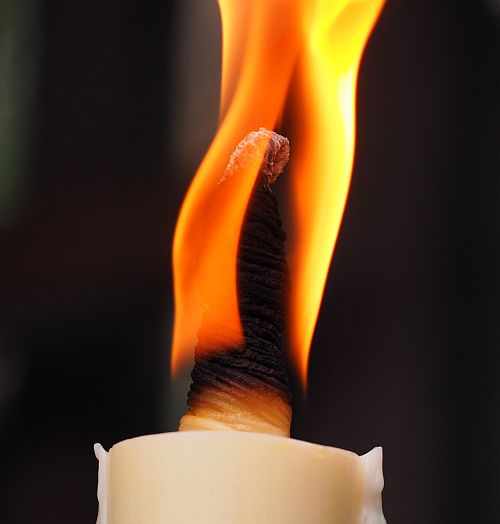
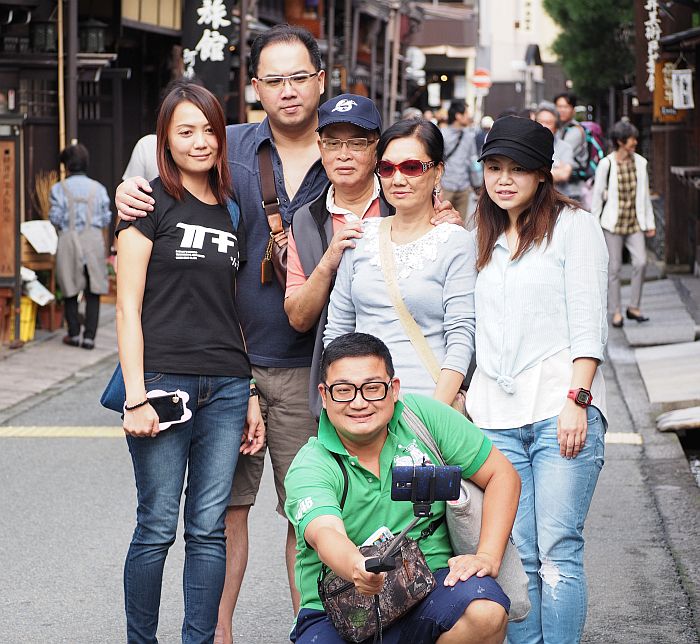
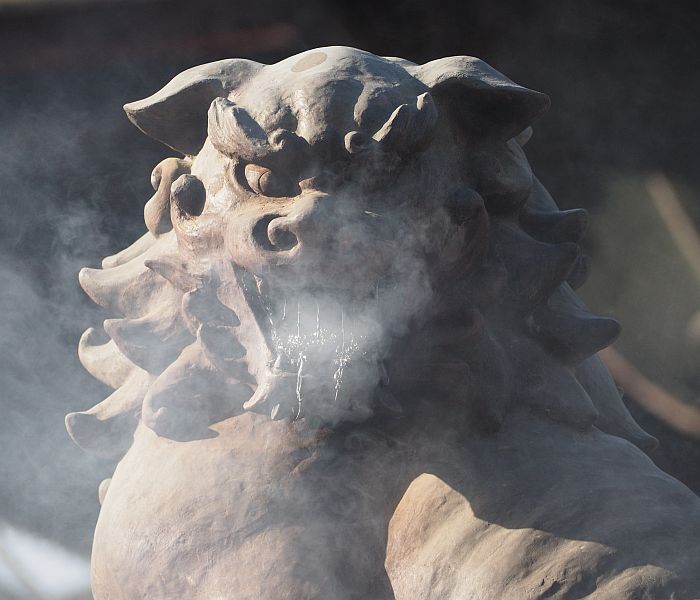
In Osaka I met my last warmshower host, Sekiji, who had already been cycling for a total of 10 years on all continents. He had just come back from India – also his riding companion, who after 4 long years returned home 2 weeks ago and was still in the reorientation phase. We had a great evening. They were open-minded, self-confident and had very clear opinions about nearly everything. It was very different for me to be with them than with all other Japanese before.
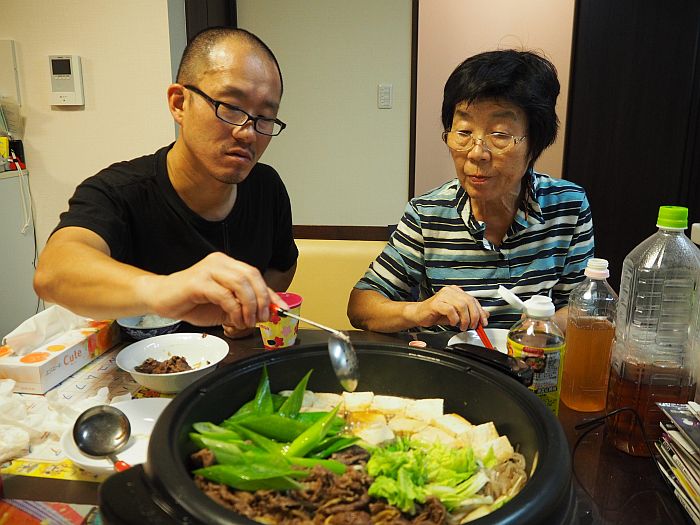
The two confirmed what I had already suspected. The Japanese love their country, but they are probably one of the most unhappy societies that I’ve come across. The high suicide rate speaks for itself. It is no wonder with all the stress that they are continuously exposed to – performance pressure as far as the eye can see.
Sekiji’s sister went to work at 7 a.m. and came home after midnight – every day. Her mother cared for her two children.
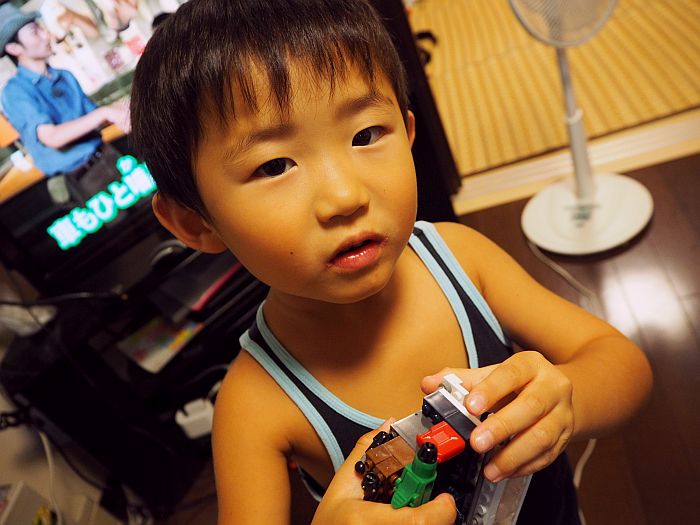
Karoshi – worked to death. An expression that exists probably only in Japan. The outrageous thing however, is that many employees remain and sit eternally long in their offices because the boss or other colleagues are still in the office, even though they themselves have finished their work long before. Only when everyone is finished with their work do they all leave. Harmony is the magic word.
For me it is simply unnecessarily wasted quality of life – hours that will never return, that are simply pointlessly wasted. In addition, it is a lot of stress, only for the purpose of preserving good relations.
Also I noticed that the people need forever to accomplish many things. Since everything has to be super perfect, it just takes time.
What will happens next with the two globe cyclists, they’re not really sure themselves. They believe primarily that they are simply outsiders. Since neither of them belongs to a single group anymore, they are no longer part of society.
Sekiji helped me find a bicycle box and grease my two hubs. Also, after 7500 km, I finally replaced my chain. Additionally, I now had a functioning rear brake again, which has been broken since I was in Russia. Takeshi gave me his. Also, we replaced the original screws on my Ortlieb panniers. The hardware store screws will certainly last much longer. I always thought that Ortlieb was „Made in Germany“.


Osaka is now the end of Japan for me, also the end of Asia. After 2 long years, I am leaving the continent and since I don’t really want to arrive at my goal for a long time, I have postponed Australia for a visit later in the future and plan to fly first to America. A large adventure playground is waiting for me there and I’m excited to see what things will be like.
With Air China, I can fly to the USA for 530 Euros, which includes my bike.
After 35,800 kilometers, a different world now awaits me. I’m really looking forward to it. So, I’ll see you on the other side of the planet once again – to be more specific, in Los Angeles. Now, until then, for the first time in my life, I will cross the dateline and experience the 1st of October twice.
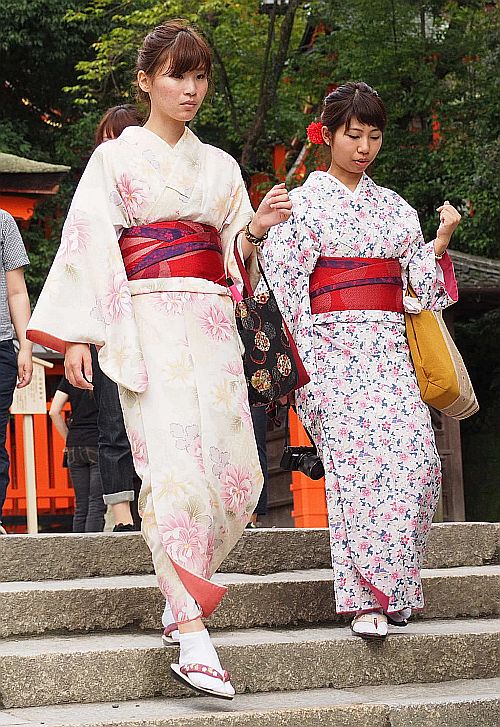
As befits the dear Japanese people, the aircraft was bid farewell on the runway by the ground personnel with an orderly bow, and I had a huge grin on my face as the thought came to my mind: the Japanese are really very different.
All in all I had a wonderful time. Thanks to all the Japanese, who showed me such a great time.
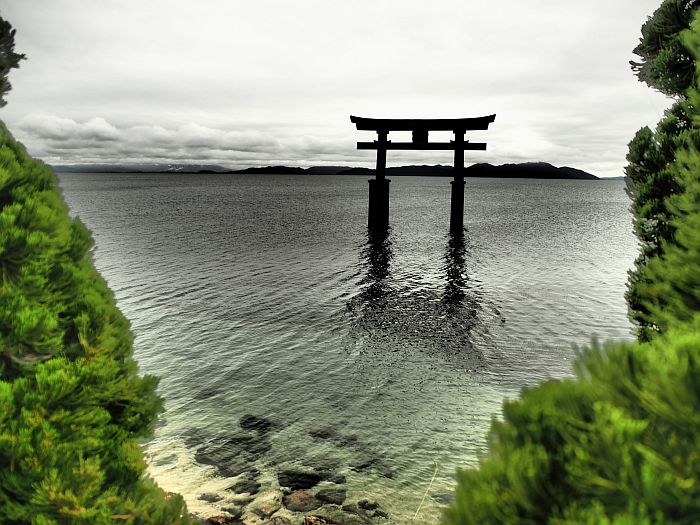
Farewell Japan!

Goodbye Asia!
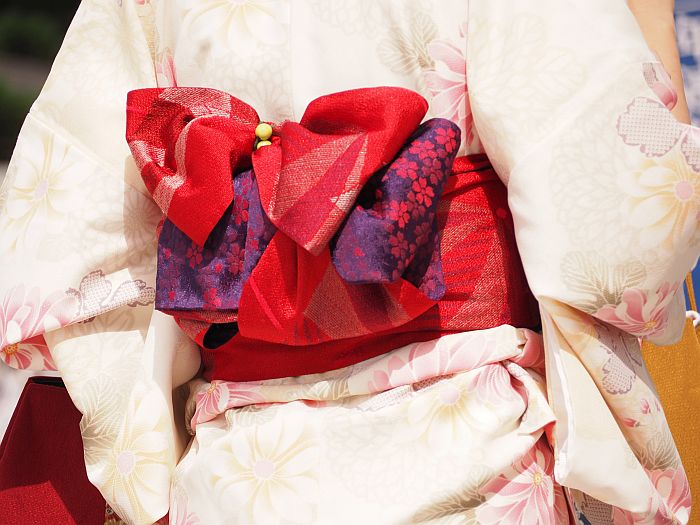


















































































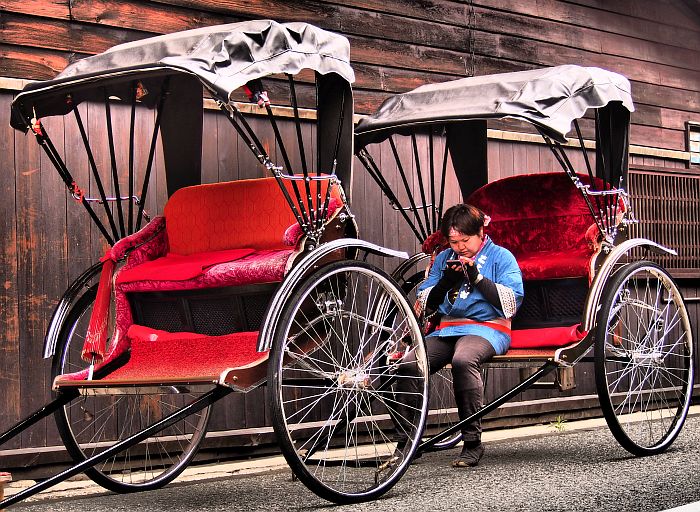













Gosh that was increadible read. Thank you.
Thanks very much Jane 🙂
Cheers Heike
“Takeshi was still in a total reorientation phase. You could tell that he was still unable to identify with his fatherland. We talked about the meaning of life and it was incredibly interesting to hear his views. But he was also honest with me that he is just a Japanese man at heart and, however much he learned abroad, he still knows where his roots are. Whether he could put up with staying in Japan, he had his doubts – a problem that probably all long-term travelers will eventually face.”
Well writen !
Now I begin to understand everything. I met a very attractive Ikuko in the sauna of my gym, in Vancouver, around 2004. After talking to her for a few minutes, I proposed to come to my house. Half jokingly, half seriously, I told her that if she wanted to move with me, that she could do it. That night she came home with her suitcase. Of course, she was only 19 years old and had a clear purpose: not to return to Japan to live with her parents. In principle, I did not give much importance to the situation. I was about 33 years old and for me that was like a passing divertimento, which should not be taken too seriously. That sooner or later she would realize our difference in age, culture, philosophy … It was not like that. She constantly talked to me about the pressure that both children and adults received in Japan and that they indeed works until exhaustion. That if she returned to Japan, she would probably commit suicide. The situation was taking a look as obsessive as dangerous. When I moved to Montreal, she followed my steps and, on one occasion, I even had to call the police to solve a dispute that was dangerously out of control. She insisted on marrying me to avoid returning to Japan and, I did not accept that obsession came true. Because of that, because it was an obsession and, therefore, irrational. In the end, Ikuko had to return to Nara, the city where she was originally from. Despite the great emotional void left after her departure – and the consequent total lack of communication – I was relieved to have gotten rid of her.